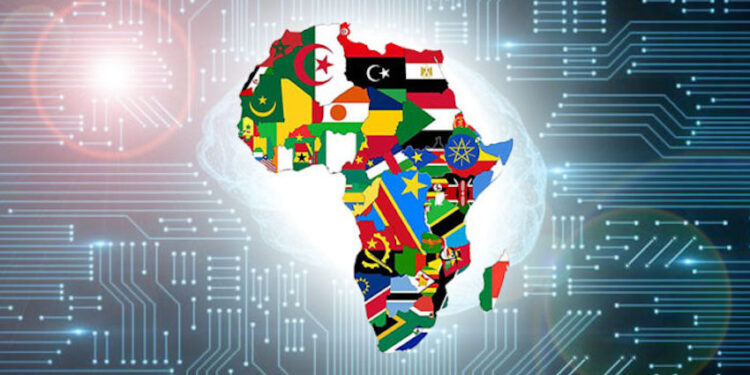Introduction
Africa was predominantly governed by authoritarian regimes for much of its post-independence history. However, the wave of democratisation that swept across the continent in the late 20th century led to significant political reforms, including the adoption of multiparty systems, constitutional reviews, and the decline of military rule.
Democracy, broadly defined as a system of government in which citizens have a direct or representative role in decision-making, is often regarded as a pillar of development. As Abraham Lincoln famously described it, democracy is “government of the people, by the people, for the people.” But does democracy necessarily translate to economic growth and social progress in Africa? This article examines the role of democracy in the continent’s development and whether other factors are equally or more important.
What Makes a Country Democratic?
For a country to be considered democratic, certain fundamental principles must be upheld. Larry Diamond, a political scientist at Stanford University, outlines four key components of a democracy:
- A system for electing government representatives through free and fair elections.
- Active citizen participation in politics and civic life.
- Protection of fundamental human rights.
- The rule of law, ensuring equal application of legal principles to all citizens (Diamond, 2019).
Similarly, the Museum of Australian Democracy highlights four foundational principles of democracy:
- A belief in the individual as rational and moral.
- A belief in reason and progress, with compromise being central to politics.
- A commitment to a consensual society based on cooperation and order.
- A system of shared power to prevent concentration of authority.
Global and African Democratic Rankings
Democracy is measured using indices that assess electoral processes, governance, political participation, civil liberties, and political culture. According to the Economist Intelligence Unit’s Democracy Index, the world’s top-ranking democracies include Norway (9.8), New Zealand (9.61), and Iceland (9.45) (EIU, 2023).
Africa’s highest-ranked democracies include:
- Mauritius (8.14)
- Botswana (7.81)
- Cape Verde (7.67)
- Namibia (7.20)
- Ghana (6.95) (EIU, 2023).
Conversely, countries with low democracy scores, such as Chad, Sudan, and the Central African Republic, tend to experience political instability and poor governance.
The Benefits of Democracy
Proponents of democracy argue that it fosters equality, stability, and accountability. Democratic governments tend to prioritise public welfare, preventing the concentration of wealth among a small elite. Transparency and electoral accountability ensure that leaders remain responsive to citizen needs, while independent media help to expose corruption and misconduct (Freedom House, 2022).
Moreover, democratic governance is associated with increased foreign investment and economic stability. Countries like Botswana and Mauritius have benefited from strong democratic institutions, which have contributed to their steady economic growth (World Bank, 2023).
The Debate: Democracy vs. Other Governance Models
While democracy is often promoted as the ideal system, some argue that it is not always synonymous with development. In many African nations, democratic transitions have been marred by electoral violence, corruption, and short-term policymaking driven by election cycles (Acemoglu & Robinson, 2019).
Conversely, some authoritarian regimes, such as Rwanda and Ethiopia (under Meles Zenawi), have experienced rapid economic growth and infrastructural development despite limited political freedoms. Countries like Equatorial Guinea and Algeria, despite being authoritarian, maintain relatively low poverty rates (World Bank, 2023).
Autocracy and Stability
A study by the Africa Center for Strategic Studies (2021) found that autocratic governments are more likely to experience instability. Key findings include the follwing:
- Three-quarters of African nations with ongoing armed conflicts are autocratic.
- Autocratic states often lack legitimacy and accountability, contributing to civil unrest.
- The majority of Africa’s most food-insecure and conflict-ridden nations are autocratic (Africa Center for Strategic Studies, 2021).
Democracy and Development: The Verdict
Countries such as Mauritius, Botswana, and South Africa demonstrate that democracy can foster economic growth when coupled with strong institutions and governance. However, other factors such as accountability, anti-corruption measures, and effective leadership play an equally crucial role in determining a nation’s developmental trajectory.
There is no doubt that democracy can play a significant role in Africa’s development, but its impact depends on how it is practiced. Democracy, when functioning effectively, can help create an environment for growth, stability, and inclusivity, all of which are important for development. However, there are challenges in making democracy work well in certain contexts. The increasing monetisation of the selection process at political party levels, the inducement of voters to receive monies and the camping of party delegates leaves a lot to be desired. Increasingly, these actions have tendered to cloud the democratic processes, and the behaviour of foot soldiers when their party wins elections is particularly concerning. The increasing political polarisation which leads to weakening of key institutions of government continue to be a challenge. Economic equality, political stability and inclusive growth are fundamental going forward.
Ultimately, democracy alone is not a silver bullet for Africa’s challenges. The focus should be on building resilient institutions, enforcing the rule of law, and promoting good governance, regardless of the political system in place.
References
- Acemoglu, D., & Robinson, J. (2019). Why Nations Fail: The Origins of Power, Prosperity, and Poverty.
- Africa Center for Strategic Studies (2021). “Autocracy and Instability in Africa.”
- Diamond, L. (2019). Democracy in Decline? Stanford University Press.
- Economist Intelligence Unit (2023). Democracy Index.
- Freedom House (2022). Freedom in the World Report.
- World Bank (2023). World Development Indicators.






























